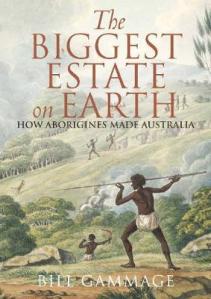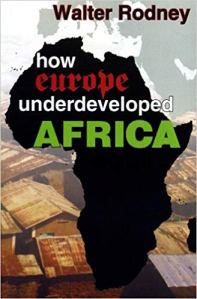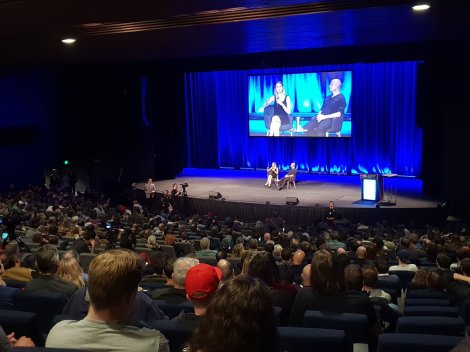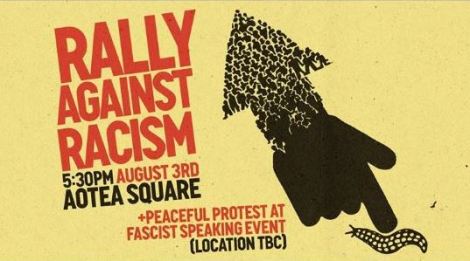The two Canadian rightist provocateurs touring Australasia at present are often compared to Fascists, even described as Fascists themselves. I was curious to know how they would pitch to their own audience during their Australasian tour, and who would be in the audience – but I was unwilling to pay the hefty fee for a ticket to find out.
Fortunately, writer Simon Copland (@SimonCopland) attended the Sydney meeting, and gave us a blow-by-blow account in a series of tweets as it happened, together with occasional comments of his own. For anyone trying to understand the phenomenon that Southern and Molyneux represent, Copland’s tweets make interesting reading. The venue was full, with a reported attendance of 750 predominantly young people, as far as it is possible to tell from the photos. It is hard to imagine any political figure from the established bourgeois parties generating such interest. That fact alone commands attention.
The first thing that struck me about Copland’s account of the meeting is that the line these two speakers took sounded more like the ideology of a blustering conservative politician of the nineteenth century than that of a fascist thug.
This gives a clue to the source of their ideas and the appeal they have to their audience. The world’s last empire, that of the United States, is in long term decline. Its decline is registered not so much in military terms – the US remains the world’s foremost military power by a long stretch – but in political weakness. For all its colossal military power, the US has been unable to impose peace on its terms in the Middle East. After nearly three decades of massive intervention in Iraq, no stability has been achieved. Still less successful has it been in Syria. It is unable to hold back the rise of Chinese power, both economic and military, in the Asia-Pacific region and Africa.
It is the declining ability of the empire to impose its will on the world, despite its overwhelming military dominance, that generates these ideas. Molyneux in particular evidences an indistinct but intense longing for the glory days of European imperialism, when the European bourgeoisie conquered the entire world, confident of its civilising mission and of the superiority of the culture it was imposing. An attempt to re-create the self-confidence of the empire’s youth, to ‘make the empire great again’ is the essence of his line.
Molyneux devoted much of his talk in Sydney to denigrating Aboriginal culture. This talk was calculated to appeal to those in Australia who are unwilling to recognise the Aboriginal genocide. He dismissed or belittled the history of the colonial massacres of Aborigines, and mocked Aboriginal origin myths for the amusement of his audience. “Aboriginal culture refuses to learn and grow,” Molyneux said. He talked about rape and infanticide in Aboriginal culture. “The Aboriginal culture is very violent,” he said. “They say that your ancestors tried to steal the land. I say they were trying to stop mass rape and infanticide.” He claimed that in Aboriginal communities more intelligent people, those who didn’t belong or broke the rules, were killed off, and that is why the culture “never moved on.” In Aboriginal culture, Molyneux asserted, it was forbidden to alter nature, which is why “they never had agriculture.”
Evidently, he is ignorant of the recent re-discoveries of Aboriginal agricultural techniques and of the careful Aboriginal stewardship of the natural environment even in regions where agriculture was not practised – wonders that are still being uncovered, after being destroyed in the genocide and then buried under two centuries of “Terra Nullius” mythology. But who needs facts, when racist myths are so much more reassuring?

In The Biggest Estate on Earth, Bill Gammage presents convincing evidence for Aboriginal stewardship of the land prior to European settlement.
This is a useful reminder that Australia’s ‘history wars’ – the long, ongoing debate about the history of colonialism in Australia, and whether or not it constituted an invasion and violent dispossession of the indigenous people – are better understood as part of the ‘culture wars’ (as defined by the incipient Fascist candidate in the US elections in 1992, Patrick Buchanan.) They revolve more about the axis of current politics than about history.
Molyneux also tapped into a deep vein of ‘white Australia’ chauvinism towards Chinese people, telling a story about being on a train in Melbourne when suddenly it filled with Chinese people. “What are you doing?” he asked, to the cheers of some in the audience.
“I want you to remember that great evils were halted with the advent of white people to Australia, just as great evils were halted with the advent of white people to South Africa,” he said. A pigeon-breasted general in the army of Queen Victoria could not have voiced this world outlook more clearly.

For an account of the impact of slavery on Africa, Walter Rodney’s book, How Europe Underdeveloped Africa, is unsurpassed
But, Mr Molyneux, your memory is selective. Let’s not forget some of the other things that accompanied ‘the advent of white people’: there was the Trans-Atlantic slave trade that robbed Africa of 25 million people, the greatest forced migration in human history, which ground into dust the astonishing achievements of the Malian empire and other African civilisations, and degraded millions of human beings to the status of animals. Then there was the pillage of the Americas, which reduced the indigenous population of South America by 75% in less than half a century. Or, the destruction of Indian handicrafts, which directly caused the death by starvation of thirty million people in the late nineteenth and early twentieth centuries.
And in case you may see these horrors as part of the civilising mission of ‘white culture,’ let us also not forget crimes against white people: the subjugation of Ireland and the depopulation of that country by famine. And the grisly tortures of prisoners in England – the crushing of limbs and heads in iron presses, the drownings, the rack, the burning at the stake of people accused of witchcraft (and the stifling conformism that these means of terror induced) as well as the frame-ups and hanging of trade unionists in the United States. Aren’t these kinds of violent suppression of ‘free thinking’ and ‘free speech’ products of ‘western culture’? If we’re talking about the wonders brought by ‘the advent of white people,’ surely these should also be mentioned?
No, Mr Molyneux, the right of free speech is not a product of ‘western culture,’ but rather a conquest wrung from it in struggle by the oppressed and exploited of all races and nationalities, at the cost of countless lives.
Lauren Southern began, as did Molyneux, by attacking the press, claiming that during her time in Australia she’s never been lied about so much in her life. “If you read the press you’d think we were just sitting in here two hours shouting racist slurs like we have racist Tourette’s.”
“The media have spent so much time attacking caricatures of nationalists that they have forgotten that they need to find out why so many people are turning to the right.” (Copland comments: This is one thing I may almost agree with…)
Molyneux had remarked at one point, “the left and the noble savages [the Aborigines] are just the same. And that is why the left is so dangerous. Because the left kills off our free thinkers.” This image Southern and Molyneux presented, of themselves as crusading ‘free-thinkers’ being persecuted by ‘the left,’ became a central theme of Southern’s talk. The people protesting her talks, she said, were “attacking a desire for inquiry itself.” In her attacks on ‘multiculturalism’ she said, “the first rule of multiculturalism is that you cannot talk about multiculturalism. Multiculturalism values any idea and concept except for critique of multiculturalism.”
This is an idea Southern borrows from Milo Yiannopoulos, which they both use to great effect. They begin by goading their opponents with grossly offensive comments and actions designed to provoke an angry response – in Southern’s case this includes handing out leaflets in a largely Muslim town saying “Allah is a gay god.” At the Sydney meeting the merchandise table included a T-shirt with the slogan “Feminism is cancer.” Then they cry “Sharia law!” or “Freedom of speech!” when they succeed in provoking the intended reaction.
This is their chief means of broadening their audience beyond the diehard racists and misogynists. It is all the more effective when their opponents behave exactly as they describe, and instead of answering the questions they raise, try to shut them down.
Much of her talk was devoted to attacking ‘multiculturalism.’ “Multiculturalism means that people will come to Australia and will not assimilate,” she said. “If we’re going to really have multiculturalism, does that mean we’re going to have witch doctors at our medical conferences?” she asked. “To multiculturalise your space is to relinquish your autonomy and your authority.” If on this occasion they spent less time banging the drums of ‘Turn back the boats,’ it was likely only because the Australian government itself is hard to outdo on that question.
Interestingly, Copland notes that Southern’s attacks on ‘multiculturalism’ didn’t get the same response from the crowd as Molyneux’s talk.
Southern got a warmer response when she mentioned US President Donald Trump. “Trump was the first person to speak the words other Americans were afraid to utter,” she said. (Another crusading free-thinker, it seems). “Trump’s slogan ‘Make America Great Again’ not only said that America wasn’t great but also acknowledged that something had gone very wrong.” “The last US election was interesting in that it was dominated by the question of identity.” T-shirts sold at the meeting included the slogans “It’s OK to be white” and “The West is the best.”
Protests against the pair are planned when they speak in Auckland. Broad-based counter-mobilisations in repudiation of their ideas is the need of the moment – not to shut down their meetings, but to challenge them politically. Unfortunately, the ‘hate speech’ line taken by some of the protest organisers cuts across this goal. “I think the thing to remember is hate speech is not free speech and what they’re doing is hate speech,” says Auckland University student Katjoesja Buissink, one of the organisers of the protest.
The problem with talking about ‘hate speech’ is that it inevitably leads to calls for censorship – if not by the state, then by direct action of the people in the streets – and this only plays into the hands of the rightists. Shutting them down on this or that occasion only gives fuel to their ‘free speech’ fires and guarantees them a wider audience in the long run.
Are the ideas they espouse offensive? Certainly they are. The sneering chauvinism these two speakers exhibit will arouse disgust and indignation in anyone with a grain of humanity in their soul. That is the intention – it’s a provocation.
It is also undoubtedly true that these ideas are oppressive. They form a key part of the whole system of national and class oppression. Their purpose is to blind the oppressed to the real sources and causes of their oppression, to get them to turn their anger and hatred inward, to blame themselves and each other for their oppression – and, in the process, to absolve the ruling class of its responsibility. They seek to obscure the real causes and sources of violence and oppression in the world, and at the same time, to disguise the real sources of human advancement in the labour and creativity of its productive classes.
But challenging and rejecting those words and those ideas is an indispensable first step towards overcoming the oppressive weight that they carry. Those who seek to outlaw and shut down such ‘hate speech’ achieve very little in terms of suppressing these ideas – which are generated anew by the very workings of capitalism itself in its senile phase. On the other hand, outlawing ‘hate speech’ is far more effective in silencing our side of the debate. Laws against ‘hate speech’ invariably get used primarily against those who hate injustice and oppression, those who seek to strengthen class hatred towards the oppressors. Shutting down those who put forward rightist ideas robs us of the opportunity to meet, challenge head-on, and defeat these ideas.
It is true that their ideas are deeply racist. But simply denouncing them as racists is woefully insufficient. Their audience in Sydney was far broader than just diehard racists and fascists. And there was hardly a single idea that they expressed which has not also been put into action by capitalist governments around the world. On the question of ‘turning back the boats’ the Australian government is already implementing that policy. Southern’s stunt off the coast of Italy where she attempted to block the rescue of stricken refugees is now Italian government policy. It is necessary to explain where these racist actions arise from and how they can be combated.
The decline of the world’s last empire takes many forms – not just the tendency to economic stagnation and sudden crises, and the drive toward wars without end, which have been clear for some time – but also the shattering of long-standing institutions of capitalist rule, including the European Union, and now NATO, and most spectacularly, both of the twin capitalist political parties in the United States. This decline is shaking everyone up, at all points on the political spectrum, and blurring lines that were once sharp. The ‘white identity’ politics that Southern espouses is an outgrowth, not the opposite, of the identity politics that prevails on the university campuses.
Behind the effort to shut the rightists down lurks the false hope that a relatively stable, peaceful capitalist democracy can be held together. This is clear in the publicity materials for the protests: “Love Aotearoa, Hate Racism” (which implies that ‘Aotearoa’ is not a racist state.) “Across the globe, the politics of hate and division are on the rise. We need to stand together to resist these vile and damaging ideas.”
But ‘hate and division’ could also be an accurate description of class politics. The ruling class is in general far more class-conscious than is the working class. The rightist and fascist elements within it are the most class-conscious of all; they are the ones who foresee most clearly the coming class wars and are preparing their military forces accordingly. Far from rejecting ‘hate and division,’ the working class needs to organise our forces in the same way, overcoming the very barriers and divisions the rightists seek to widen amongst ourselves, between native-born and immigrant, men and women, barriers of religious and national oppression, and sharpen our hatred of them, the ruling class.






